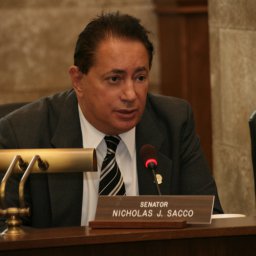Bill responds to considerable inadequacies identified by SCI report
TRENTON – A bill sponsored by Senator Barbara Buono called the “Charity Care Fraud Prevention and Detection Act” was signed into law by the Governor today. This bill will improve State oversight and implement measures to prevent waste, fraud, and abuse in the Hospital Care Payment Assistance Program, commonly called Charity Care.
“New Jersey Charity Care has been highly susceptible to fraud and abuse for far too long,” said Senator Buono, D-Middlesex, a member of the Senate Health, Human Services and Senior Citizen Committee. “We need to make sure that Charity Care is going to the people who actually qualify, and that New Jersey taxpayers are not subsidizing fraudulent Charity Care claims.”
“The amount of money being wasted on these claims is simply unacceptable,” said Buono. “As we work to tighten the state budget and improve fraud prevention in New Jersey, it is important that people are not allowed to slip through the cracks of programs like Charity Care.”
The bill, a Senate substitute for S-2702, S-2727, and S-3007, was first proposed after the State Commission of Investigation (SCI) issued a report in April of 2007 detailing the waste, fraud, and lack of oversight plaguing the Charity Care program. The report identified approximately $1 million in medical services received by individuals who did not legally qualify for coverage under Charity Care.
The bill will require the Commissioner of Health and Senior Services to implement uniform procedures for use by hospitals in obtaining information from Charity Care applicants and transmitting the information to the Department. It will require the Commissioner to establish an inter-agency agreement with the Medicaid Inspector General to verify Charity Care eligibility and recover money related to fraudulent claims. Furthermore, it allows the Commissioner of Health to reduce a hospital’s annual Charity Care funding if it is determined that the hospital sought State funding for claims in which they should have had reasonable cause to suspect deception.
The SCI report specifically links the vulnerability of Charity Care with the ineffectiveness of the Department of Health and Senior Services (DHSS) and the Department of Human Services administering the program. It further states that the two departments have no effective mechanism to detect fraud and do not actively pursue credible complaints or suggestions of illegal activity. The SCI itself investigated allegations of such activity that had been brought to the state’s attention but lay dormant for months and sometimes even years.
In addition to the inadequacies of the departments administering the program, the absence of strict, uniform hospital procedure in eligibility screening is also identified by the SCI report as another major problem. The report mentions one specific incident in which the follow-up work conducted by hospital personnel to confirm the existence of an address provided by a prospective Charity Care patient merely consisted of a drive past the property.
“The SCI report is an eye-opener for heath care policymakers and professionals in New Jersey,” said Buono. “I am confident that the ‘Charity Care Fraud Prevention and Detection Act’ will effectively enhance the fiscal and operational integrity of New Jersey’s Charity Care program.”



